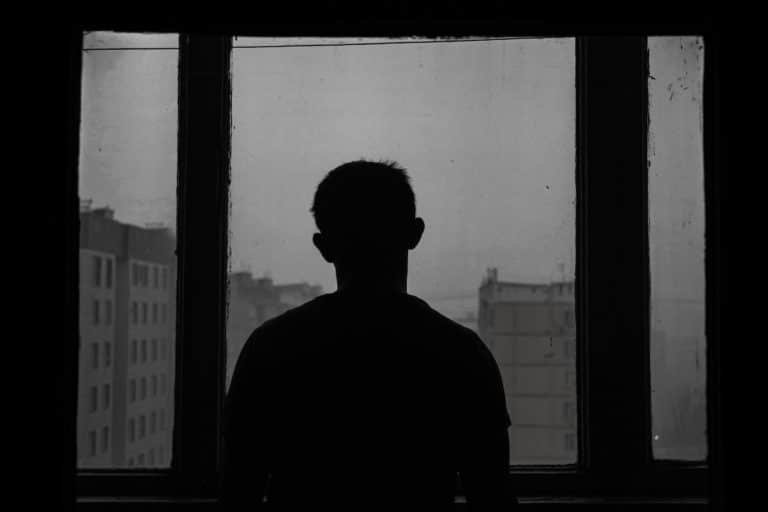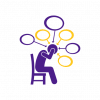
Depression Treatment Center in California
Sadness is something everyone experiences from time to time. Depression, however, is an ongoing problem that usually stems from saddening major life events. Thankfully, there are a variety of effective treatment options available to those who suffer from clinical depression, and our depression treatment center in California is ready to help.
Our mental health specialists have both medicinal and therapeutic options to ease depression in all its forms. If you or a loved one has any symptoms of depression it is advised to seek the treatment option that best aligns with your or their depressive symptoms.
Home » Treatments » Depression Treatment in Orange County
What Is Depression?
Major depressive disorder, known as depression, is a serious mental health illness that is relatively common throughout the United States. The American Psychiatric Association has concluded through many clinical trials and tests that those struggling with depression are likely to experience adverse side effects. The way the individual thinks, how they feel throughout the day, or even how they are acting can all be affected by this disorder. The good news is that depression is treatable and our Southern California Depression Treatment Center in California can help.
When you are suffering from depression, you would typically begin to notice a sudden loss of interest in many hobbies or activities that you once enjoyed. A variety of physical and emotional issues are also often seen where the decrease in the person’s ability to function appropriately through everyday tasks and responsibilities.
Types of Depression
The different symptoms of depression can vary from mild to severe, depending on various factors that differ from one person to another. When attempting to understand better the type of depression you have, your doctor or psychiatrist doctor may use specifiers. This means that the appearance and certain features are used to help identify and determine the form of depression.
Some commonly seen types of depression that are often treated in the United States include:
- Seasonal: Feelings of depression that are related to a reduced exposure amount of sunlight, changes in the seasons.
- Melancholic: This often describes severe depression. It involves experiencing feelings of little to no interest in things that previously brought happiness or pleasure.
- Psychotic: Depression symptoms in this form are typically accompanied by hallucinations or delusions that may involve a variety of negative themes.
- Anxious: Overwhelming feelings of restlessness and uncertainty are usually associated with this form of depression. Appears sometimes as mind games that you play with yourself where there is never a possibility of a positive outcome.
Signs & Symptoms of Depression
Many different symptoms come from the varying levels of depression that many suffer from in their life. For the hefty majority of those struggling with a form of depressive disorder, changes to how they function in everyday life often go unnoticed and just become part of their new reality. While unaware of these unhealthy changes, quite the toll can be taken on the person’s mental health and well-being.
- Lack of interest in hobbies and other activities
- Suicidal thoughts
- Physical aches and pains
- Decrease in energy
- Changes in appetite
- Thoughts of guilt and hopelessness
- Changes in sleep patterns
- Heightened irritability and agitation
- Lack of motivation
- Minimal movement and activity

Leading Causes of Depression
Firstly, it is good to understand that disorders like depression do not have a single cause. It can be triggered by life events such as physical illness, life crisis, substance abuse, or any other scenarios where the individual’s life is largely impacted. Developing a depressive disorder can also happen very suddenly and without warning.
However, in today’s day and age, doctors, scientists, and other industry professionals have come to find that there are re-occurring factors that have consistently been seen contributing to depression.

Genetics
Depression and many other types of mood disorders are often seen to run in families.

Trauma
Studies have shown that when someone experiences a trauma-causing event in the early years of their life it can affect them down the road. These events can cause long-term changes in how their brain learns to process the feelings of stress or fear.

Life Events
Relationship changes, financial situation, home surroundings, and marital status are all heavy contributors. These factors determine whether the likelihood of someone developing depression is higher or not.

Drug or Alcohol Abuse
Co-occurring disorders require specialized forms of treatment so that both conditions are adequately addressed and cared for correctly. This is crucial because a substance like alcohol has been proven to increase and worsen many symptoms of depression severely. The Substance Abuse and Mental Health Services Administration (SAMHSA) has stated that in 2018, approximately 21% of adults struggling with substance use disorder reported having experienced at least one major depressive episode as a result.
Types of Treatment
Most people with depression benefit from medication and psychotherapy. Medications can be prescribed by your primary care doctor or psychiatrist to relieve symptoms. Nevertheless, doctors, counselors, and other mental health professionals can also assist people with depression.
Medications
Antidepressants are available in a wide range of strengths. This makes it easier to determine which is the most appropriate drug for a person’s symptoms. Prescription antidepressants are available in many forms. An individual’s symptoms and needs determine which antidepressant is right for them.
Typically, antidepressants work by balancing neurotransmitters, which are the chemicals that regulate brain communication. A number of chemicals are involved in this, including serotonin, and dopamine. Higher levels of these chemicals usually correspond with lower levels of depression.
The effectiveness of antidepressants varies from patient to patient as well. The length at which the drug stays in your body also varies with the individual. The effects of some drugs last for 36 hours, while other last for a few days.
Psychotherapy
Mental health professionals treat depression through psychotherapy, which involves talking about your condition and related issues with them. Talk therapy or psychological therapy are other names for psychotherapy.
Depression can be treated with various types of psychotherapy, including cognitive-behavioral therapy and interpersonal therapy. Other types of therapy may also be recommended by your mental health professional.
Each client, upon arriving at SoCal Sunrise Treatment Center for depression, is welcome with open arms. Our mental health professionals are prepared to do everything in their power to customize a treatment plan specifically for you.
Depression Treatment in California
Don’t let your loved one or yourself suffer knowingly from depression. The Southern California Sunrise Recovery Mental Health Team is here to help. Our services provide therapeutic and medicinal treatments that are uniquely catered to each patient that walks through our doors.
Call today and the skilled therapists and psychologists at our Orange County, California Depression Treatment Center will help. They will begin writing up a comprehensive program consisting of a combination of our available treatment programs.
Frequently Asked Questions
People feel sad every once in a while or even for a long period of time and thats normal. The main difference between feeling down and clinical depression is that clinical depression restricts you from enjoying day to day or normal activities. Depression can last for weeks, months or even years often getting worse with time.
Depression can be different for everyone. Some individuals can see positive results quickly after receiving treatment while others need drastic changes to their lives to see improvement.
Women are twice as likely to get depression then men. This could be due to the hormonal changes they go through as women. This includes experience such as pregnancy, menopause, or even after giving birth.
Various types of depression can last for months or even years if it is left untreated. Different types of depression have different duration. For example, seasonal depression usually extends throughout the winter months and improves during spring and summer.
Clinically Reviewed By:
Joe Cavins, LMFT
Joseph Cavins holds a Bachelor of Science in Human Services from Cal State Fullerton and a Master of Science in Clinical Psychology from Pepperdine Graduate School of Education and Psychology. Initially inspired during his tenure as a school bus driver, Joseph balanced his duties with his studies, demonstrating a strong commitment to his academic pursuits. Post-graduation, he gained significant experience in clinical settings, interning at Aspen Community Services where he later served for 10 years, eventually becoming a Licensed Marriage and Family Therapist. He also earned certification from the Equine Assisted Psychotherapy Association as a Mental Health Provider.
Joseph’s professional journey includes roles in private practice and contracting with the Santa Ana Unified School District’s Special Education Department, culminating in his recent position at Southern California Sunrise Recovery in 2024.